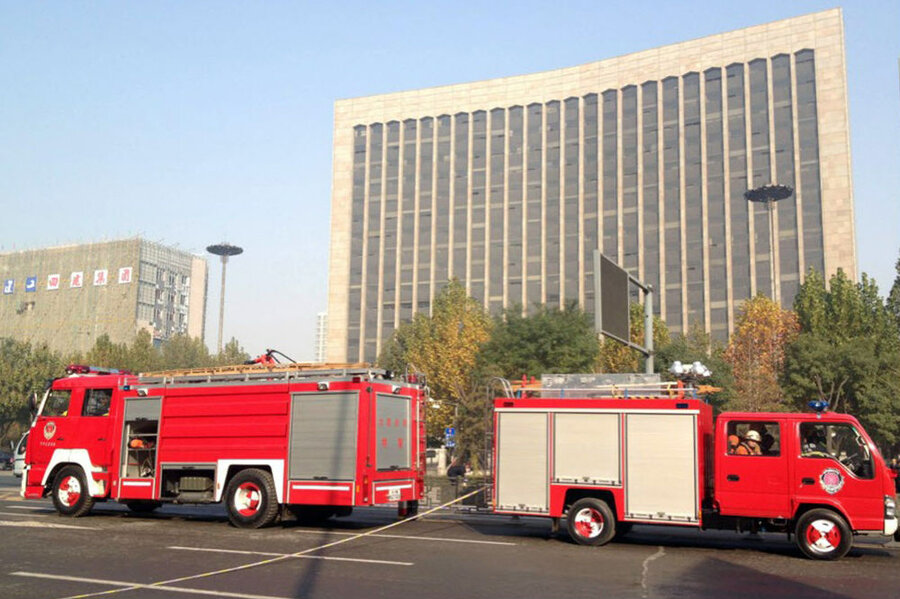Explosions in north China: How rare are such bombings?
Loading...
| Beijing
Bomb explosions are not common in China, where policing is strict and it is not easy to get hold of explosives. But they are by no means unknown; some people’s grievances and frustrations lead them to extreme measures.
Wednesday’s explosions outside the regional headquarters of the ruling Communist party in Taiyuan, in Shanxi Province, however, were distinctive: Seven bombs went off in quick succession, suggesting an unusual level of sophistication. One person was killed and at least eight others were injured, according to official reports.
The small bombs had been hidden in roadside flower pots and contained marble-sized ball bearings, to judge by photos taken on the spot by witnesses that circulated on social media sites.
Nobody has claimed responsibility for the blasts, and the police have not blamed anyone. But China’s security forces are nervous in the wake of last week’s attack in Tiananmen Square, when three ethnic Uighurs from western China plowed their vehicle through crowds of tourists before setting it alight. Two bystanders died and 40 were injured.
Most Chinese bomb explosions are not the work of alleged Muslim extremists, though. Almost always they are set off by Han Chinese, members of the dominant ethnic majority, who do it to express their rage at injustice.
Last July, a wheelchair-bound man set off a small bomb at Beijing airport to protest a beating by security guards that had left him disabled. He hurt himself, but nobody else was injured.
More seriously, four people were killed in the southwestern province of Yunnan last year when two men – angry at the little money they were being offered by developers who were about to tear down their homes – used a mobile phone to detonate a bomb that blew up a government office in the city of Zhaotong.
In 2011 an unemployed farmer, Qing Mingqi, whose land had been forcibly confiscated by the local government, killed himself and two others with two bombs that he set off inside and outside a government building in Fuzhou, in the central province of Jiangxi.
Such desperate men resorting to desperate tactics are never referred to in the official Chinese press as “terrorists” – though their use of violence targeting civilians for political ends would seem to qualify them for such a label. In China, only Tibetan and Uighur separatists are officially deemed to be “terrorists.”
While Tibet and Xinjiang, the western province where most Uighurs live, are under very close surveillance, and airport security is generally very strict, few Chinese cities seem to take the possibility of a “terrorist threat” too seriously. Security checks at railway stations are perfunctory, and left luggage offices still accept baggage without checking it, for example.
Reporters in Taiyuan noted that there were few closed circuit TV cameras around the Communist party HQ; while such cameras have proliferated in China in recent years, especially at politically sensitive spots, they do not provide the kind of blanket coverage that police in, say, Britain can count on.








